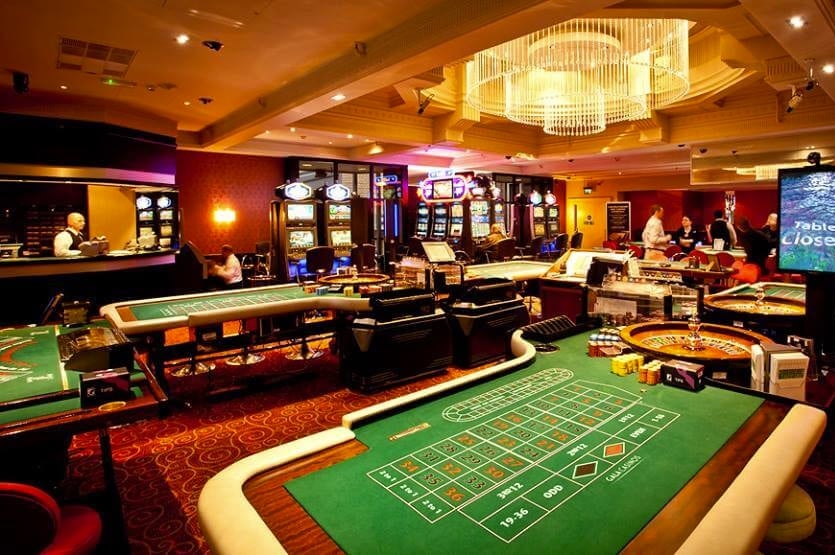How Gambling Games Mirror the Humanity's Existence

Casino games have long been a staple in human culture, offering not just entertainment but a intriguing reflection of our hopes, ambitions, and concerns. From the rotating wheels of a slot machine to the tactical play of poker, these games embody a range of human emotions and experiences. At their core, casino games are more than a chance to win money; they are a snapshot of life itself, where risk and reward converge and fortunes can change in an instant.
As players gather around tables or sit in front of brightly lit machines, they take part in a ceremony that transcends mere betting. These games echo our innate desires for relationships, thrill, and the pursuit of luck. They also reveal deeper truths about human psychology, such as our relationship with fate and the adrenaline of the unknown. In exploring casino games, we reveal not only the rules of play but also the complex weave of the human journey, showcasing our intertwining narratives of goal and reality.
The Mind Behind Gambling
Gambling is intrinsically connected in human psychology, tapping into various emotions and desires. The excitement of risk-taking is a core aspect that attracts participants, whether the excitement of spinning a roulette or the excitement of drawing a winning card in a poker game. This rush of adrenaline is frequently likened to other forms of thrill, as the unpredictability of outcomes triggers a unique psychological response. 58win Players often find themselves entranced by the chance of striking it rich, leading to an almost magnetic draw toward gambling games.
Another, an essential component of the psychology behind gambling is the concept of hope and ambition. Participants often nourish fantasies of financial freedom and the luxurious lifestyle that can accompany winning. This hope fuels their continued participation in casino games, as it provides a sense of meaning and the belief that a transformative win could be just one bet away. The story of overcoming odds and finding success resonates with many, reinforcing their commitment to play and involve themselves with these games.
Lastly, social dynamics play a significant role in gambling psychology. Casino environments are designed to foster social interaction, where gamblers gather to share the experience of wins and losses. This communal aspect not only amplifies enjoyment but also influences behavior, as individuals often imitate the actions of others around them. The collective approval found in mutual thrill can enhance the emotional experience, making casino games a reflection of not just personal desires but also collective engagement within the gaming community.
## The Dual Nature of Risk and Reward
Gambling games embody the delicate balance between risk and reward that resonates profoundly with the human experience. The excitement of placing a wager is often accompanied by a surge of excitement, as gamblers are confronted with the chance of striking it rich, yet fully aware of the risk to suffer losses. This bipartisan experience reflects a core aspect of life: the choices we make often come with built-in risks, and the pursuit of reward can push us to make risky moves we might not typically consider. In this way, gambling activities echo real-world decisions, enticing gamblers to gamble not just their funds, but also their hopes.
The allure of big prizes and payouts fuels a feeling of positivity, inspiring players to imagine a more promising future that could manifest from a lucky spin of the wheel or flip of a card. This optimism can motivate individuals to engage in greater risks, urging them to push their boundaries in search of monetary success. However, just as in life, the results of these risks can lead to both triumph and failure. The narratives of both big winners and those who have suffered everything at the casino demonstrate the unpredictable nature of chance and its consequential repercussions on our existence.
Ultimately, the experience of engaging with gambling activities serves as a vivid illustration of the nature of humanity. Every session played is loaded with the tension of ambiguity, as players weigh the rewards against the risks. This dynamic not only highlights the excitement that comes with gambling but also unveils the vulnerabilities that come with the urge for more. As we journey through the complexities of decision-making and consequence in both the gambling world and in life, we find that the search for benefit shapes our sense of self and experiences in deep ways.
Society and Isolation in Casino Culture
Gambling culture is a unique mix of communal interaction and personal endeavor, reflecting the dualities of individual experience. Players often come together around tables, experiencing in the thrill of the game, rejoicing in wins, and sympathizing over losses. This social aspect is crucial, as it establishes a sense of belonging and bonding among varied groups of people. Regular visitors to gaming establishments may form friendships and develop routines, turning the gambling venue into a alternative home where they feel linked to a greater community of players.
However, the attraction of casino games can also result to loneliness. As individuals become immersed in the thrill of playing, they may isolate from personal connections or neglect to engage with the world outside the gaming space. For some, the search of a jackpot can overshadow genuine connections, leading to loneliness. The situation of being surrounded people yet experiencing solitary is not rare, as the attention shifts from collective fun to the individual concerns of each player’s path.
This interplay of society and solitude creates a rich tapestry that defines gaming culture. It highlights the intricacy of social interactions, where happiness and sorrow exist together. Casinos serve as both a refuge for social engagement and a stage for individual struggles, demonstrating how deeply entwined our yearning for connection and the individual quest for wealth can be. In navigating this environment, players confront their own narratives—seeking both the thrill of the game and the fellowship of fellow players, ultimately mirroring the broader spectrum of human experience.
